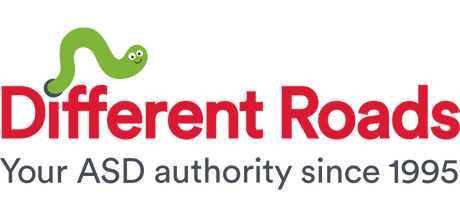Children with Autism Spectrum Disorder (ASD) have amazing potential that can and should result in a high quality of life. However, this is highly dependent on the treatment received. Unfortunately, the current standard of care—Conventional Applied Behavior Analysis (ABA)—is quite rigid and formulaic in its approach, yielding treatment that is not tailored to the unique needs of the children and their families. Typically, treatment only addresses limited areas such as behavior and communication deficits. Although children may receive some benefits from Conventional, protocol-based ABA, the results usually do not endure over time, nor do they translate to more natural settings that are essential for self-sufficient adulthood.
Autism Partnership Method is an extremely individualized approach to ASD that yields lifelong benefits. Rather than follow a “one size fits all” treatment recipe. Progressive ABA training is not time based, but performance based — no less rigorous or precise than the training regimens of surgeons or civil engineers. Quality treatment focuses on the entire child, thereby addressing the child’s foundational behaviors, including communication, socialization, play, and independent living skills — as opposed to addressing a more limited set of behavioral or communication needs. Progressive ABA treatment is designed so that children can succeed in mainstream settings, such as regular education classes, and can thrive in extracurricular activities. Children who receive progressive treatment, have been shown to make the progress their parents dream of, such as playing with their sibling and developing meaningful friendships.
In 2011, the journal Education and Treatment of Children published A Program Description of a Community-Based Intensive Behavioral Intervention for Individuals with Autism Spectrum Disorder. This study evaluated the progress of 64 children at Autism Partnership agencies in Seal Beach, California; Hong Kong; Leeds, United Kingdom; and Melbourne, Australia. The results found that 70.3% of children achieved best outcomes when individualized ABA services were provided early (i.e., before the age of 9), and intensively (i.e., 10–40 hours a week), by quality therapists.
At Autism Partnership we are deeply concerned about the expectations regarding the outcomes for children diagnosed with ASD! Simply put, we feel that the expectations are too low. Children with ASD have a far more favorable prognosis than believed achievable decades ago, yet there still seems to be a lack of understanding regarding children’s’ actual potential. Children with ASD have amazing potential! The majority of children can become conversational, achieve success in school, develop meaningful friendships and most importantly, experience a high quality of life! However, achieving this requires high quality intervention with highly trained staff.
Register for the Autism Partnership seminar here!
About The Author
Ronald Leaf, Ph.D. is a licensed psychologist who began his career working with Ivar Lovaas in 1973 while receiving his undergraduate degree at UCLA. Subsequently he received his doctorate under the direction of Dr. Lovaas. During his years at UCLA he served as Clinic Supervisor, Research Psychologist, Interim Director of the Autism Project and Lecturer. He was extensively involved in several research investigations, contributed to the Me Book and is a co-author of the Me Book Videotapes, a series of instructional tapes for teaching autistic children. Dr. Leaf has consulted to families, schools, day programs and residential facilities on a national and international basis. Ron is a Director of Autism Partnership. Dr. Leaf has published extensively in research journals. Dr. Leaf is the co-author of: A Work in Progress, Time for School, It Has to Be Said!, Crafting Connections, A Work in Progress Companion Series and Clinical Judgement.
